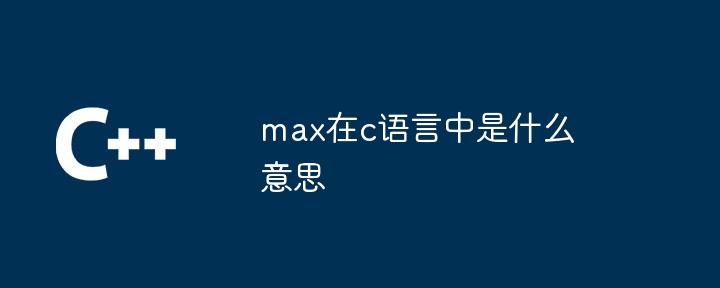
In C language, max is a macro used to determine the maximum value among multiple expressions. It is defined by the <stdlib.h> header file. The max(expression1, expression2, ..., expressionN) macro returns the maximum value of two or more expressions. The expressions participating in the comparison must be of the same type, and non-numeric characters cannot appear in the expressions. The max macro can also be used to compare floating point values and character constants.

The meaning of max in C language
In C language, max is a macro used for selection The maximum value of two or more expressions. It is defined by the <stdlib.h> header file.
Syntax:
<code>#include <stdlib.h> max(expression1, expression2, ..., expressionN)</code>
Parameters:
Return value:
Example:
#include <stdlib.h>
int main() {
int a = 10;
int b = 20;
int c = max(a, b); // c 将等于 20,即 a 和 b 中的最大值
printf("Max of %d and %d is: %d\n", a, b, c); // 输出:Max of 10 and 20 is: 20
return 0;
}Note:
The above is the detailed content of What does max mean in c language. For more information, please follow other related articles on the PHP Chinese website!




